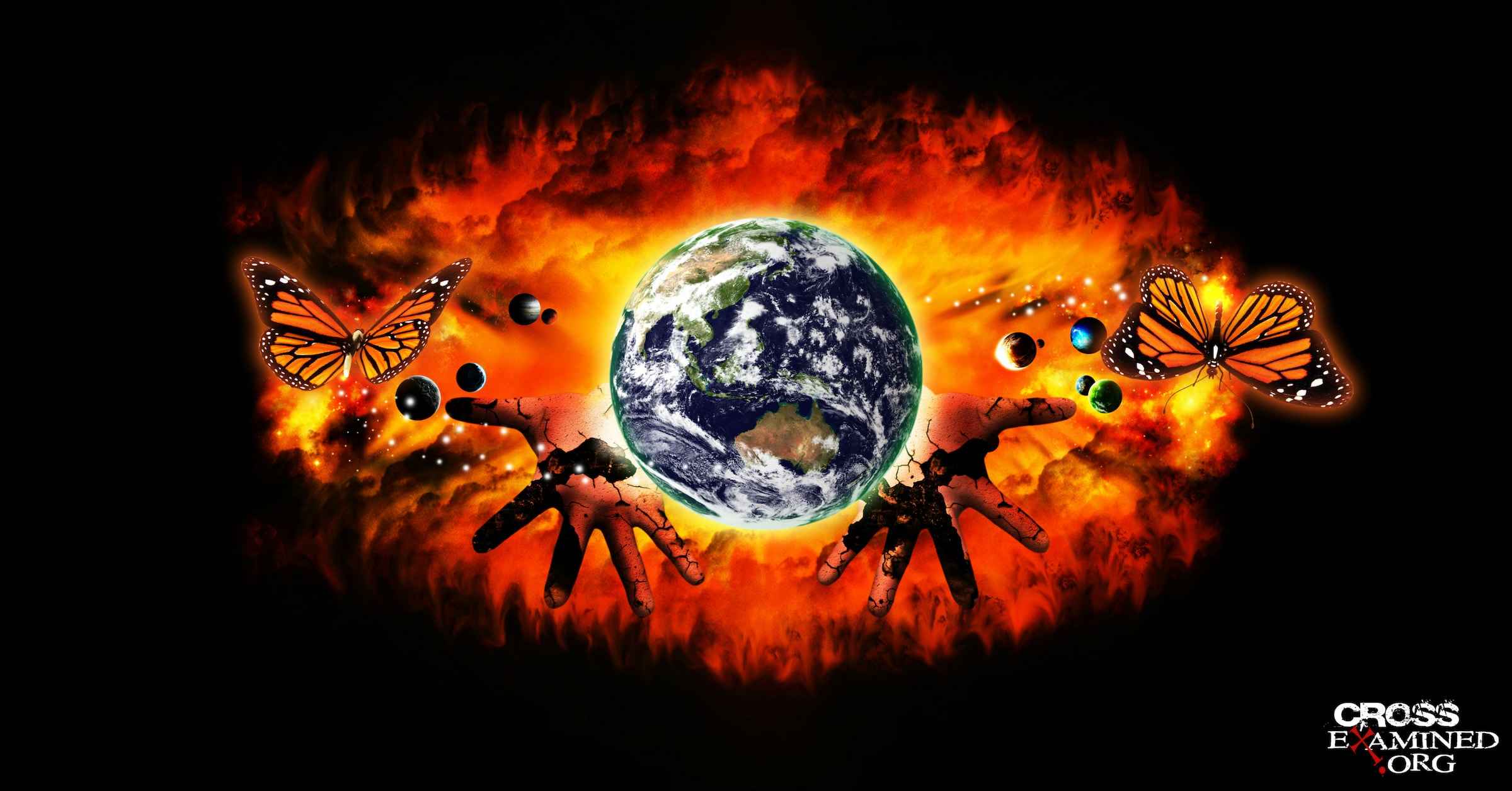The following is adapted from chapter 6 of I Don’t Have Enough Faith to Be an Atheist:
The God-of-the-Gaps fallacy occurs when someone falsely believes that God caused the event when it really was caused by undiscovered natural phenomena. For example, people used to believe that lightning was caused directly by God. There was a gap in our knowledge of nature, so we attributed the effect to God. Darwinists assert that theists are doing the same thing by claiming that God created the universe and life. Are they correct? No, for a number of reasons.
First, when we conclude that intelligence created the first cell or the human brain, it’s not simply because we lack evidence of a natural explanation; it’s also because we have positive, empirically detectable evidence for an intelligent cause. A message (specified complexity) is empirically detectable. When we detect a message like “Take out the garbage, Mom” or 1,000 encyclopedias we know that it must come from an intelligent being because all of our observational experience tells us that messages come only from intelligent beings. Every time we observe a message, it comes from an intelligent being. We couple this data with the fact that we never observe natural laws creating messages, and we know an intelligent being must be the cause. That’s a valid scientific conclusion based on observation and repetition. It’s not an argument from ignorance, nor is it based on any “gap” in our knowledge.
Second, Intelligent Design scientists are open to both natural and intelligent causes. They are not opposed to continued research into a natural explanation for the first life. They’re simply observing that all known natural explanations fail, and all empirically detectable evidence points to an intelligent Designer.
Now, one can question the wisdom of continuing to look for a natural cause of life. William Dembski, who has published extensive research on Intelligent Design, asks, “When does determination [to find a natural cause] become pigheadedness? . . . How long are we to continue a search before we have the right to give up the search and declare not only that continuing the search is vain but also that the very object of the search is nonexistent?” Consider the implications of Dembski’s question. Should we keep looking for a natural cause for phenomena like Mount Rushmore or messages like “Take out the garbage-Mom”? When is the case closed?
Walter Bradley, a coauthor of the seminal work The Mystery of Life’s Origin, believes A there doesn’t seem to be the potential of finding a [natural explanation] for the origin of life. He added, AI think people who believe that life emerged naturalistically need to have a great deal more faith than people who reasonably infer that there’s an Intelligent Designer.” Regardless of whether or not you think we should keep looking for a natural explanation, the main point is that ID scientists are open to both natural and intelligent causes. It just so happens that an intelligent cause best fits the evidence.
Third, the Intelligent Design conclusion is falsifiable. In other words, ID could be disproven if natural laws were someday discovered to create specified complexity. However, the same cannot be said about the Darwinist position. Darwinists don’t allow falsification of their “creation story” because, as we have described, they don’t allow any other creation story to be considered. Their “science” is not tentative or open to correction; it=s more closed-minded than the most dogmatic church doctrine the Darwinists are so apt to criticize.
Finally, it’s actually the Darwinists who are committing a kind of God-of the-Gaps fallacy. Darwin himself was once accused of considering natural selection “an active power or Deity” (see chapter 4 of Origin of Species). But it seems that natural selection actually is the deity or “God of the Gaps” for the Darwinists of today. When they are totally at a loss for how irreducibly complex, information-rich biological systems came into existence, they simply cover their gap in knowledge by claiming that natural selection, time, and chance did it.
The ability of such a mechanism to create information-rich biological systems runs counter to the observational evidence. Mutations that aren’t neutral are nearly always harmful, and time and chance do the Darwinists no good, as we explained in chapter 5. At best, natural selection may be responsible for minor changes in living species, but it cannot explain the origin of the basic forms of life. You need a living thing to start with for any natural selection to take place. Yet, despite the obvious problems with their mechanism, Darwinists insist that Natural Selection covers any gap in their knowledge. Moreover, they willfully ignore the positive, empirically detectable evidence for an intelligent being. This is not science but the dogma of a secular religion. One could say that Darwinists, like the opponents of Galileo, are letting their religion (or at least their philosophy) overrule scientific observations.
Dr. Frank Turek (D.Min.) is an award-winning author and frequent college speaker who hosts a weekly TV show on DirectTV and a radio program that airs on 186 stations around the nation. His books include I Don’t Have Enough Faith to be an Atheist and Stealing from God: Why atheists need God to make their case


